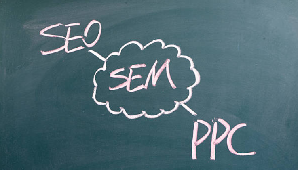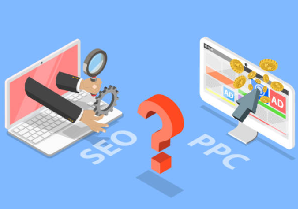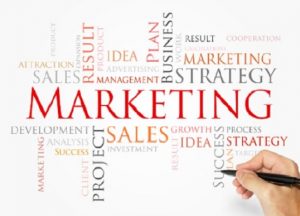SEO vs PPC, or should you do both?
Category : Digital Marketing Services
It’s amazing how many businesses really aren’t sure which of these two digital marketing strategies to apply for the best return on their investment.
So, in our latest blog we’re going to tackle the pros and cons for SEO vs PPC, and see which campaigns offer the best value for money.
An example of SEO vs PPC
As we know many companies budgets can be tight, especially to start with and many business owners and marketing departments are concerned where their money is best spent.
So, I thought I would start with my own experience dating back to 2003. At the time, I had to make very clear decisions on whether to go with PPC, or SEO. The company I started up was Breakeryard.com. The business model is based on attracting as many people as possible to search for car and van parts, whilst building up a database of parts sellers at the same time, to send out the part quotes.
We especially needed more people searching for parts to start the company off (and lots of them!) in order to attract and retain the sellers. This is where SEO and PPC came into play, with decisions and strategies needing to be deployed.
We desperately needed the parts enquiries to grab the seller’s attention in order to grow the monthly subscriptions. The Breakeryard service became a win-win! as customers managed to save loads of money, whilst at the same time seller’s offloaded parts resulting in a boost in profits.
Fortunately, I had a friend called Ed who loved SEO and had experienced tremendous success through his own online dating agency he had launched in 2001.
In fact, he had achieved 3 million hits a month globally! So, I had seen the benefits of SEO first hand, and loved it that his clicks were free.
I knew it had taken Ed some time to build, so for Breakeryard to reach the top of Google with keywords such as ‘used car parts’, or ‘secondhand car parts’, I knew it would become very labour intensive and time consuming.
To start with I simply didn’t have the time initially and it was ‘all hands on deck’ to cold call and get the seller’s onboard.
I therefore decided to go down the PPC road in the interim and used platforms such as the Autotrader, and Google to target our specific markets (as there was no social media around back then).
The challenge was soon identified with the fast growing PPC budget running at £3000+ per month. The main way we could get this back was only through selling monthly subscriptions, as we made no money on the part sales.
I learned quickly that the business model played a significant part of whether to go with PPC, or SEO.
We needed to move to SEO as quick as possible, to save on the PPC.
It finally took 8 months of hardwork on SEO to produce more enquiries than PPC, in order for us to drop the budget.
Eventually, due to time restraints and needing more help, we started employing SEO agencies, (some good, and some bad). I gained a lot of experience in this area, and understood what a client needs when it comes to SEO.
At Breakeryard, we finally launched the marketplace (you could call it a labour of challenging love, with many obstacles to overcome) which in turn provided an e-commerce system enabling the sellers to list parts themselves directly online.
Breakeryard now earns a percentage of each part sale for the listing. So, it’s possible to say it would be worth reviewing the benefits of PPC again, as the pay-per-click could be calculated directly into the part sale.
In general, you need to have the right business model in place to decide on whether to go down the PPC, and SEO routes. Knowing your CPA (cost-per-acquisition) is key, and conducting a cost-to-serve analysis also plays a major part in your decision making.

Pros and Cons of SEO and PPC
Let’s start with looking at SEO
Firstly, let’s understand what SEO is. Search engine optimisation (SEO) is the process of ensuring your website, and web pages rank organically well in Google, or even Yahoo and Bing’s. More info on SEO can be found here
When you place a search into Google, the 1st page to appear in the results will be divided into 3 main categories, in descending order.
At the top you will see the PPC (pay-per-click) adverts, underneath you will see the local businesses near you (Google Places), and then you will see the natural organic results. You may find more PPC results under the organic as well.
The organic results are mainly driven by your websites trust, confidence and reputation with the search engines.
There are no short cuts in this day and age to reaching the top. You always need to aim for quality onsite, and quality offsite content.
SEO is one of our major passions here at 1st Choice Marketing, we firmly believe gaining free-clicks should form a part of every companies marketing strategy.
The organic ranking positions are also based on search engine algorithms, which are always changing, and being updated. In fact, Google alone makes over 3000 changes every year to their algorithms. The algorithim’s calculate the quality and relevancy of your website, and then rank you accordingly based on the search criteria!
Part of SEO is constantly reviewing the algorithmic updates to review what Google sees as important, and then optimising your website based on the findings.
At 1st Choice Marketing, we have an ear to the ground and will conduct a comprehensive SEO health check for all our clients to determine their website is on track.
Benefits of SEO
Let’s have a look at how SEO can really benefit your business.
– When you apply the right techniques, SEO offers the power to stay for long periods of time in top ranking high traffic positions.
– SEO can work out cheaper for you in the long term, rather than PPC.
– Each click is free! So, unlike PPC you don’t pay when someone keeps clicking your website.
– SEO attracts more clicks than PPC ads, as people trust the organic results more.
– Rapid growth opportunity! You can get more web traffic quicker, and grow faster than other companies who have been trading for years longer.
Downsides of SEO
– SEO is very time consuming, results may not appear overnight and can take months, even years in some highly competitive markets.
– You will need to become an expert in your field, so writing unique and authoritative content is very important.
– You need to keep within search engine guidelines, both onsite and offsite with your content.
– You cannot always control the results for relevant websites to link back to you.
– If you suddenly find the influx of enquiries too big, you can’t easily switch off the enquiries (although there are ways round this).
So, why PPC?
PPC (pay-per-click) is where you simply pay each time someone clicks on your website, or landing page from a paid advert. You can find out more on PPC here.
Advantages of PPC
– PPC is very fast to get results, a campaign can be set up in literally 1 hour, or less.
– You can easily manage the budget. You can switch off a campaign instantly if it doesn’t work, or is too successful.
– You can easily manage, and analyse the success of a campaign.
– Relevancy now plays a part for positioning, so creating the right ads can result in beating competition and paying less.
– PPC can give instant brand recognition.
– You can experiment fast with different products and services.
Dis-advantages of PPC
– It can be very expensive, especially if you don’t know how to manage a campaign properly – it can backfire!
– You must make sales and retain new customers, or you’ve lost money.
– Some industries require massive budgets! Like mortgages, insurance and other financial sectors.
– There is a risk the ads can become stale, as visitors who keep seeing you may scan over the ads and they become less effective.
– PPC doesn’t carry the same trust factors with searchers as the organic results. Basically, PPC could be a business simply working out of their bedroom, as anyone can set up a campaign.
In Summary
When deciding on whether to go down the SEO or PPC road, you will need to review your business model, and prioritise your budgets. If you decide on PPC then make sure the customers who does business with is looked after as once that click is pressed you risk eroding your budget, and fast.
Having a life time value (LTV) strategy for winning clients is key for repeat business, and can be calculated into the cost-per-click.
We hope you have found this article helpful, and please feel free to comment below.
If you’re still not sure what’s right for you, then please contact one of our specialists at 1st Choice Marketing and we’d love to help point you in the right direction.
Blog post by Matt Bott, Founder of Breakeryard.com, and 1st Choice Marketing.





 That’s not to say that traditional methods such as newspaper adverts, posters, bus adverts etc. don’t work as they can, but as the consumers buying experience is ever evolving, and their attention is drawn online, then so must our marketing strategies.
That’s not to say that traditional methods such as newspaper adverts, posters, bus adverts etc. don’t work as they can, but as the consumers buying experience is ever evolving, and their attention is drawn online, then so must our marketing strategies.
 For many years Businesses and Charities looked inwardly when it came to their Sales and Marketing initiatives. This has proven quite costly as not only does this take up lots of time and energy from the management, but it can be quite costly to the organisation itself. Tax and national insurance needs to be paid for all employees followed by holiday pay and sick pay etc. The end results can also prove inconsistent which can only add to the internal politics as well. This is where
For many years Businesses and Charities looked inwardly when it came to their Sales and Marketing initiatives. This has proven quite costly as not only does this take up lots of time and energy from the management, but it can be quite costly to the organisation itself. Tax and national insurance needs to be paid for all employees followed by holiday pay and sick pay etc. The end results can also prove inconsistent which can only add to the internal politics as well. This is where 
 1. Cost effective and reduced risk
1. Cost effective and reduced risk
